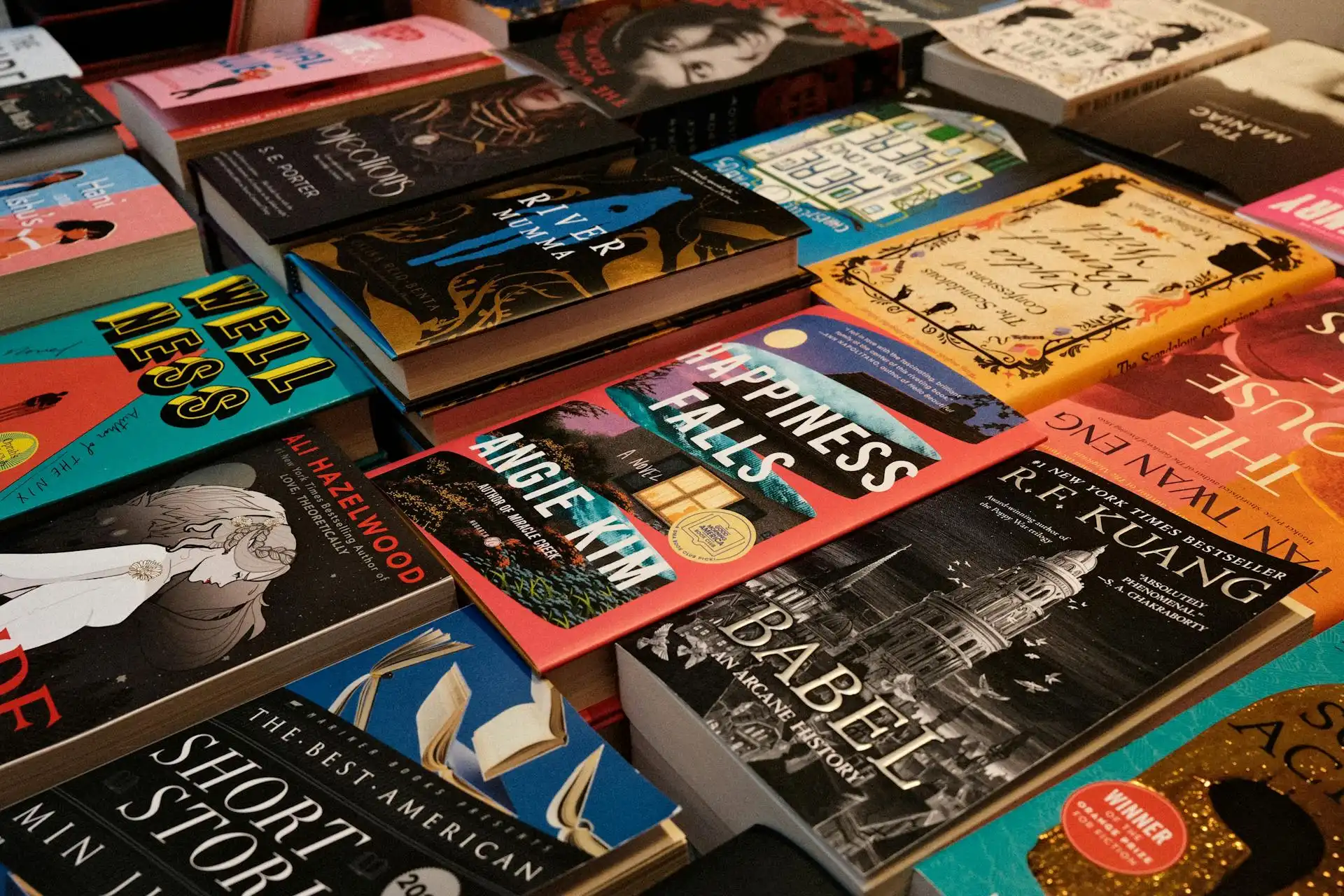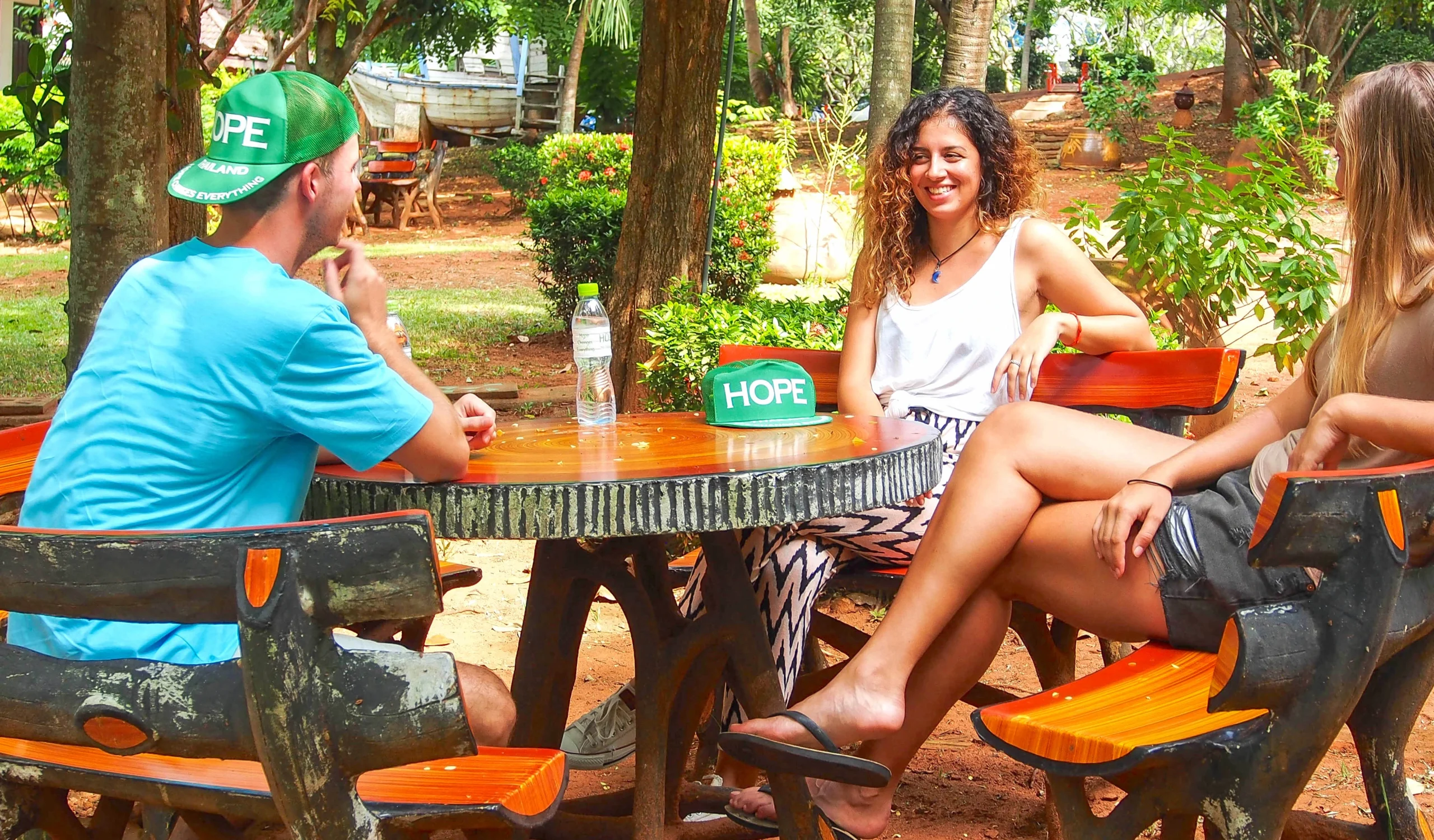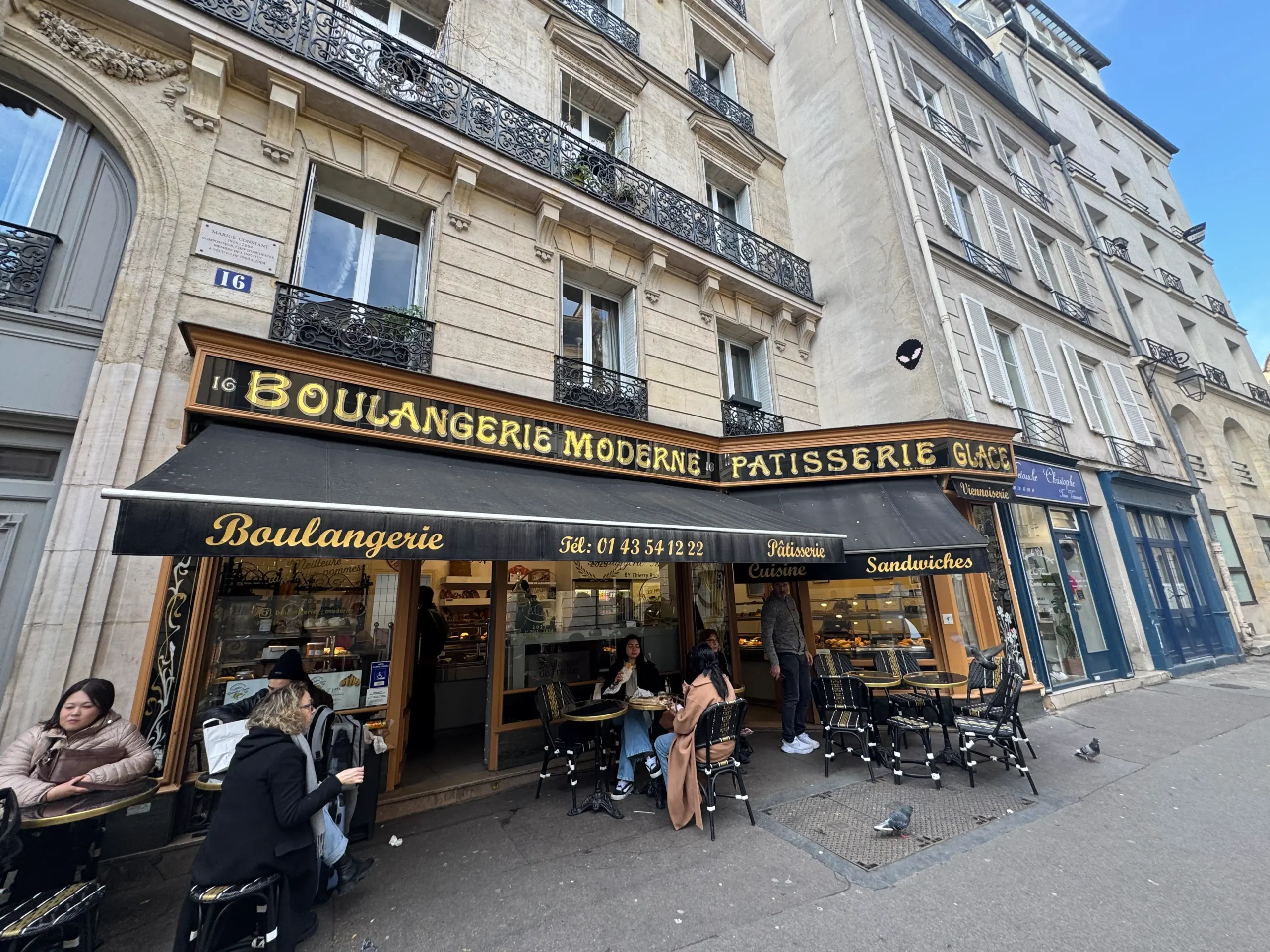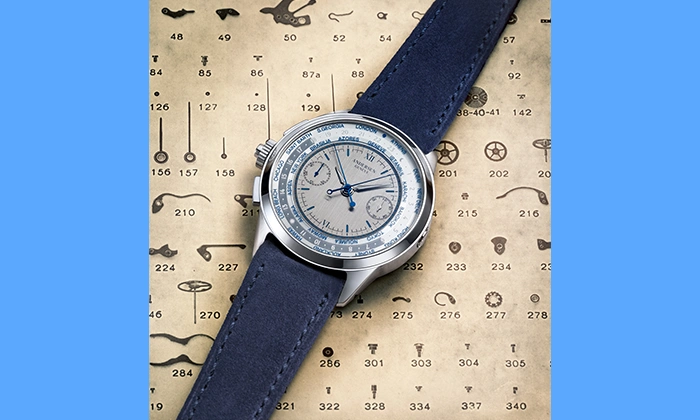Realising a life’s journey

John E. Kaye
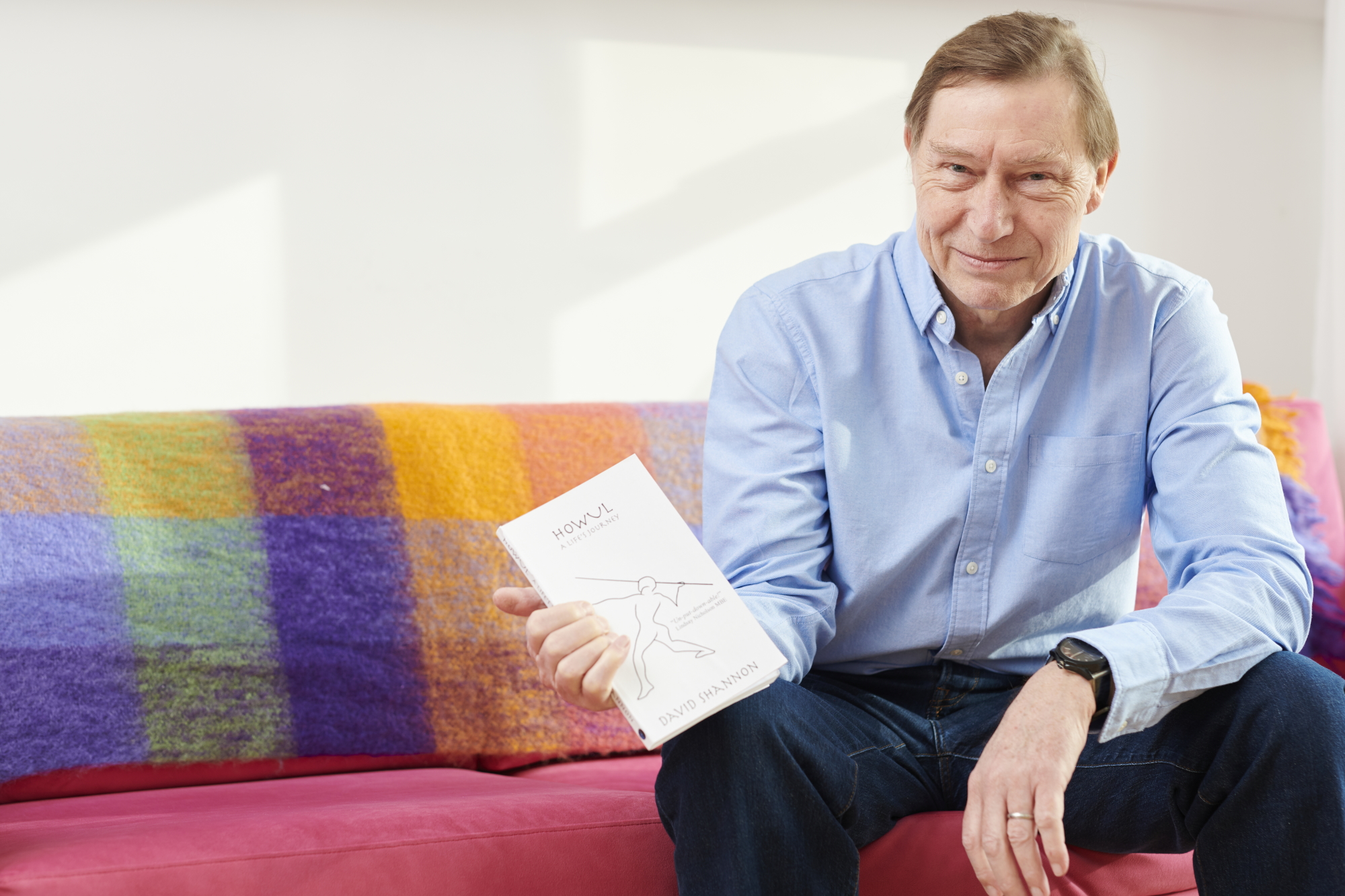
With the release of his new novel ‘HOWUL’, David Shannon may be about to emerge as a major literary talent in his own right
David Shannon is, perhaps, most famous for being married to Booker-Prize winning author Bernardine Evaristo, but with the release of his new novel, HOWUL, he may be about to emerge as a literary talent in his own right.

Photo credit: Paul Stuart
The name ‘David Shannon’ might not be immediately familiar to you, but that of his wife — Bernardine Evaristo OBE —certainly will be.
Bernardine made history in 2019 when she became both the first black woman and first black British author to win the coveted Booker Prize, for her novel Girl, Woman, Other.
Being in such esteemed literary company as Bernardine has clearly had a profound effect on her husband of 12 years, as David has just released a novel of his own: HOWUL: A Life’s Journey.
Writing is nothing new to David, who started out as a showbiz journalist for national newspapers and magazines including the Sunday Times, Cosmopolitan, and Good Housekeeping.
In the mid-90s, however, he abandoned journalism to pursue another of his passions: acting. Assuming the stage name of David France, he has since appeared in a plethora of theatre productions and low-budget feature films including cult classic Werewolves of the Third Reich and the forthcoming indie comedy The Unfathomable Mr. Jones.
He has also carved out successful career writing, running and acting in murder mystery events through his company, Murder Mystery Games.
This love of the classic who-dunnit led to David’s first foray into fiction-writing in the early noughties, with a quaint crime novel packed with a rogue’s gallery of suspicious solicitors, arch accountants, and sinister senior managers. Unfortunately, this did not chime with literary agents or readers’ tastes at the time for more visceral fayre and it duly “sunk without trace”.
That may have been it for David the author, until he met Bernardine in 2006. Bonding over a mutual love of literature, she inspired him to try his hand at another novel, and was the one who suggested he pursued his idea for a post-apocalyptic story set in north Wales.
This time, however, David was determined that his new novel — now named HOWUL — would leave a lasting impression, as he explains:
“From my days in journalism, I know how hard it is for new writers to be noticed. It’s not enough just to do what those who already get work are doing.
“You have to be different somehow. Before HOWUL, I wrote a crime novel which almost found a publisher but wasn’t special or unusual enough for anyone to take on.
“With HOWUL, however, I set out to create something that agents, publishers, and readers might be surprised by — and something that they would pay more attention to.
“Most of my journalism was frothy and funny. My murder mysteries are, too. Novels, I know, have to offer more than that,” he adds.
“I wanted HOWUL to tell a good story and set out how I feel about things. I wanted my book to shock people; to make them smile; and to make them think.”
David has certainly achieved all three in HOWUL, which has just been published through Elsewhen Press.
Taking place in an unspecified future, when an apparent catastrophe has brought down civilisation and regressed society to pre-technological status, it focuses on the eponymous Howul — a socially-inept, self-critical character very much in the paradigmatic outsider mould.
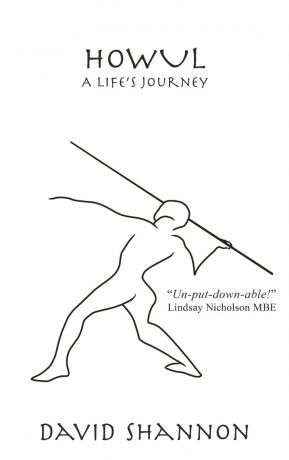
A healer by profession — travelling between small, self-contained communities — he is intelligent and inquisitive, seeing things differently in a barbaric time where books are treated as dangerous and mental non-conformity can easily cost you your life.
HOWUL is one of those novels that is impossible to pigeonhole, being as much an adventure story as a work of literary or experimental fiction. What is clear throughout, however, is a keen sense of satirical humour and incisive commentary on present-day concerns.
“As a child, my favourite books were adventure stories such as Robinson Crusoe and Treasure Island, while in my teens I moved on to ‘clever stuff’ by Dickens, Tolstoy, George Eliot, and the political satire of George Orwell”, says David.
“I also love crime novels by the likes of Arthur Conan Doyle, Agatha Christie, Jeffrey Archer, and Frederick Forsyth. In HOWUL, I grabbed bits of all these genres and mixed them all together.
“Thematically, it examines how ordinary people deal with especially hard times, how they interact, and how they cope when those in charge of society control through deceit, force and social division, but all told with a good dollop of dark humour.”
The novel is also singular in the sense that it features a created language, ‘Howlish’, complete with a handy vocabulary and grammar guide at the back.
David, 64, continues: “Making up a new language was important as it reflects what has changed for the people inhabiting the story; it shows how they are expressed by their environment.
“It is a time of shortage and regression, so the language they rely on reflects this, being more limited and basic than modern English. As they say in Howlish, ‘Simple time keep people simple’.
“In HOWUL, the stories we are all familiar with have also become something new. Shakespeare’s Macbeth and Romeo and Juliet have been passed down as ‘Macdeth’ and ‘Romaro and Jewel’, for instance.
“It’s comparable to what Britain must have been like after the Romans left. Culture and technology have gone into reverse. There are no phones, no computers, no Netflix, no shops.
“Imagine Donald Trump retelling Cinderella or Boris Johnson retelling Pinocchio. Stories change according to who gets to tell them.”

Photo credit: Paul Stuart
Caption: David Shannon credits his Booker Prize-winning wife, Bernardine Evaristo OBE, with motivating him to write HOWUL.
In total, it has taken David more than 12 years of “writing and rewriting, rejecting and taking advice, and cursing myself for creating a new language that I had to remember” to bring his book to fruition.
This sizeable investment of time, however, paid off, with the novel securing representation through leading London literary agency A M Heath.
More importantly to David, this achievement came through his own literary merits. Though Bernardine provided handy pointers along the way, he deliberately did not inform literary agents or publishers of his marriage to her before they accepted it.
He adds: “I’ve never felt in competition with Bernardine, and I have nothing but gratitude for the excellent advice she offered, but I wanted to make sure that my writing could stand on its own two feet.”
Bernardine is equally impressed with her husband’s accomplishment, saying: “I am so proud of my husband for writing this extraordinary novel, which dares to be so different and plunges us into a strange and gripping alternate universe.
“It shows us what can happen to human nature and behaviour when society’s sophisticated structures and systems are no longer in place and people are left to fend for themselves amid new power dynamics.”
HOWUL: A Life’s Journey by David Shannon (Elsewhen Press), is available now through Waterstones, priced £10 in paperback and £2.99 as an eBook.
Exclusive interview with David Shannon
We ask author David Shannon to tell us more about his new novel, HOWUL, about how the Covid pandemic changed his book, and about what he would do if he was appointed prime minister for just one day, among other things…

Photo credit: Katie Vandyck
Q. Your new novel is a work of satire. What current-day social issues are in its crosshairs, and why?
A. Satire uses humour to tackle subjects which can otherwise seem dry and earnest. In HOWUL, it looks at how some political leaders behave and how they get away with it: lying, looking after their own, ignoring or scapegoating those in need, surrounding themselves with ‘Yes’ men, deliberately creating division and failing miserably to get even simple things right. Ring any bells?
Q. What do you think of the current government’s support for the arts?
A. At the moment, it’s all gesture politics. When former Tory stalwart Andrew Lloyd Webber complains about something, the Government promises another bit of money to shut him up then walks away again. I’m aware of how dire the current financial crisis is, but supporting the arts isn’t just about such ‘luxuries’ as enriching people’s lives by making great music, drama, dance, fine art and books available to them. It makes economic sense, too. The knock-on effect of supporting them means that doing so is an investment, not a subsidy. The word ‘culture’ might give some politicians the shivers but, when the arts thrive, everyone benefits — financially as well as socially.
Q. You have created your own language for the book. Can you explain how you went about this, and why you felt it important to do so?
A. My book is a first-person account by someone living in the future. How he talks is bound to be different from how we talk. While the book remains very readable, the changes in the language reflect what’s important in his society. Nearly everything is in the present tense because coping with the here and now dominates everyone’s lives. Also, I was able to have fun making up some new words: “chuffy” (‘annoying cheeful’); “craxy” (‘tetchy’); “scrunty” (‘ugly’); and “shonked” (‘ruined’).
Q. What attracted you to writing an experimental work of literature, and how would you define what ‘experimental’ means?
A. Doing so would, I thought, help make my book stand out more. Agents and publishers already receive so many manuscripts and I didn’t want mine to get lost in the crowd. Also, it suits my temperament. I’m old and ugly enough now not to settle for being like other writers but to strive for something new. Pushing boundaries, taking risks, breaking rules. I guess that’s what ‘experimental’ means. People often assume it also means ‘boring’ and ‘impossible to read’. It doesn’t have to!
Q. Outside of writing, what are your main enthusiasms?
A. Watching Gogglebox and First Dates. Supporting Bristol Rovers. Birdwatching. Playing computer games. Playing chess. Playing the ukulele (very badly). Singing. Complaining.
Q. You are married to a Booker Prize-winning author. How has this affected you as a writer?
A. Seeing how hard she works and how fearless she is in her own writing were both eye-openers for me. Even though she is astonishingly busy, she is always willing to offer feedback, too. I’d like to be able to say that I receive it graciously and accept that she knows what she’s talking about. Not a bit of it. I sulk, get defensive, resist then sulk a bit more before eventually coming to my senses. I’m an actor. What would you expect?
Q. You completed your book during lockdown. Did this event have any impact on the story before publication?
A. The book was all finished and ready to go. Then Covid struck. Reading it again in lockdown, I realised people would engage with it differently. I wrote it as a warning against complacency, against letting things get worse by doing nothing. Then our own mini-Apocalypse arrived. I switched from encouraging readers to prevent bad things from happening to consoling them and offering them hope. A big change!
Q. Your book includes a subplot about disease. How do you see the Covid pandemic having changed society?
A. My simple, unhelpful answer is — I just don’t know! Part of me believes it has made us more fearful, more intolerant, more divided. Another part believes it has brought us together and made us more caring. I suppose it’s done both at the same time. A rug has been pulled from under our feet and none of us has landed yet.
Q. If you could be prime minister for one day, what would you do?
A. I’d have a nice breakfast, get a decent haircut, nap, end racism, terrorism, injustice, inequality, poverty, and corruption, and then have some lunch. Oh, and I’d also install a compulsory ‘Lie’ box in Number 10. Every time a prime minister lies in future, they have to give a month’s wages to the homeless.
Q. Your career has been varied. If you could only choose one profession, which would it be and why?
A. The honest and shameful truth is this: whatever gets me the most recognition and praise. Never mind any creative or financial rewards, I remain an inveterate attention-seeker. A long-running role in EastEnders versus being ranked 3 millionth on Amazon? I’ll stick with acting, thank you. Winning the Booker Prize versus being a walk-on in a legal services advert? Writing! Writing! Writing!
RECENT ARTICLES
-
 Need some downtime? Head to Nerja for some serious decompression
Need some downtime? Head to Nerja for some serious decompression -
 How a book becomes a ‘bestseller (and it’s not what you think)
How a book becomes a ‘bestseller (and it’s not what you think) -
 Fipronil: the silent killer in our waterways
Fipronil: the silent killer in our waterways -
 Addiction remains misunderstood despite clear medical consensus
Addiction remains misunderstood despite clear medical consensus -
 New guide to the NC500 calls time on 'tick-box tourism'
New guide to the NC500 calls time on 'tick-box tourism' -
 Bon anniversaire, Rétromobile: Paris’ great motor show turns 50
Bon anniversaire, Rétromobile: Paris’ great motor show turns 50 -
 Ski hard, rest harder: inside Europe’s new winter-wellness boom
Ski hard, rest harder: inside Europe’s new winter-wellness boom -
 Baden-Baden: Europe’s capital of the art of living
Baden-Baden: Europe’s capital of the art of living -
 Salzburg in 2026: celebrating 270 years of Mozart’s genius
Salzburg in 2026: celebrating 270 years of Mozart’s genius -
 Sea Princess Nika – the ultimate expression of Adriatic elegance on Lošinj
Sea Princess Nika – the ultimate expression of Adriatic elegance on Lošinj -
 Hotel Bellevue, Lošinj, Croatia – refined wellness by the Adriatic
Hotel Bellevue, Lošinj, Croatia – refined wellness by the Adriatic -
 Padstow beyond Stein is a food lover’s dream
Padstow beyond Stein is a food lover’s dream -
 Love really is in the air. How to spot a sky full of heart-stealing stars this Valentine's Day
Love really is in the air. How to spot a sky full of heart-stealing stars this Valentine's Day -
 Cora Cora Maldives – freedom, luxury and a celebration of island life
Cora Cora Maldives – freedom, luxury and a celebration of island life -
 Hotel Ambasador: the place to stay in Split
Hotel Ambasador: the place to stay in Split -
 Maslina Resort, Hvar – mindful luxury in the heart of the Adriatic
Maslina Resort, Hvar – mindful luxury in the heart of the Adriatic -
 The bon hiver guide to Paris
The bon hiver guide to Paris -
 Villa Mirasol – timeless luxury and discreet elegance on the island of Lošinj
Villa Mirasol – timeless luxury and discreet elegance on the island of Lošinj -
 Lošinj’s Captain’s Villa Rouge sets a new standard in private luxury hospitality
Lošinj’s Captain’s Villa Rouge sets a new standard in private luxury hospitality -
 Villa Nai 3.3: A Michelin-recognised haven on Dugi Otok
Villa Nai 3.3: A Michelin-recognised haven on Dugi Otok -
 The European road test: The Jeep Wrangler Rubicon
The European road test: The Jeep Wrangler Rubicon -
 Rattrapante Mondiale – Split-Seconds Worldtimer
Rattrapante Mondiale – Split-Seconds Worldtimer -
 Adaaran Select Meedhupparu & Prestige Water Villas: a Raa Atoll retreat
Adaaran Select Meedhupparu & Prestige Water Villas: a Raa Atoll retreat -
 Heritance Aarah: an island escape crafted for exceptional family and couples’ stays
Heritance Aarah: an island escape crafted for exceptional family and couples’ stays -
 Stanley Johnson in Botswana: a return to the wild heart of Southern Africa
Stanley Johnson in Botswana: a return to the wild heart of Southern Africa


